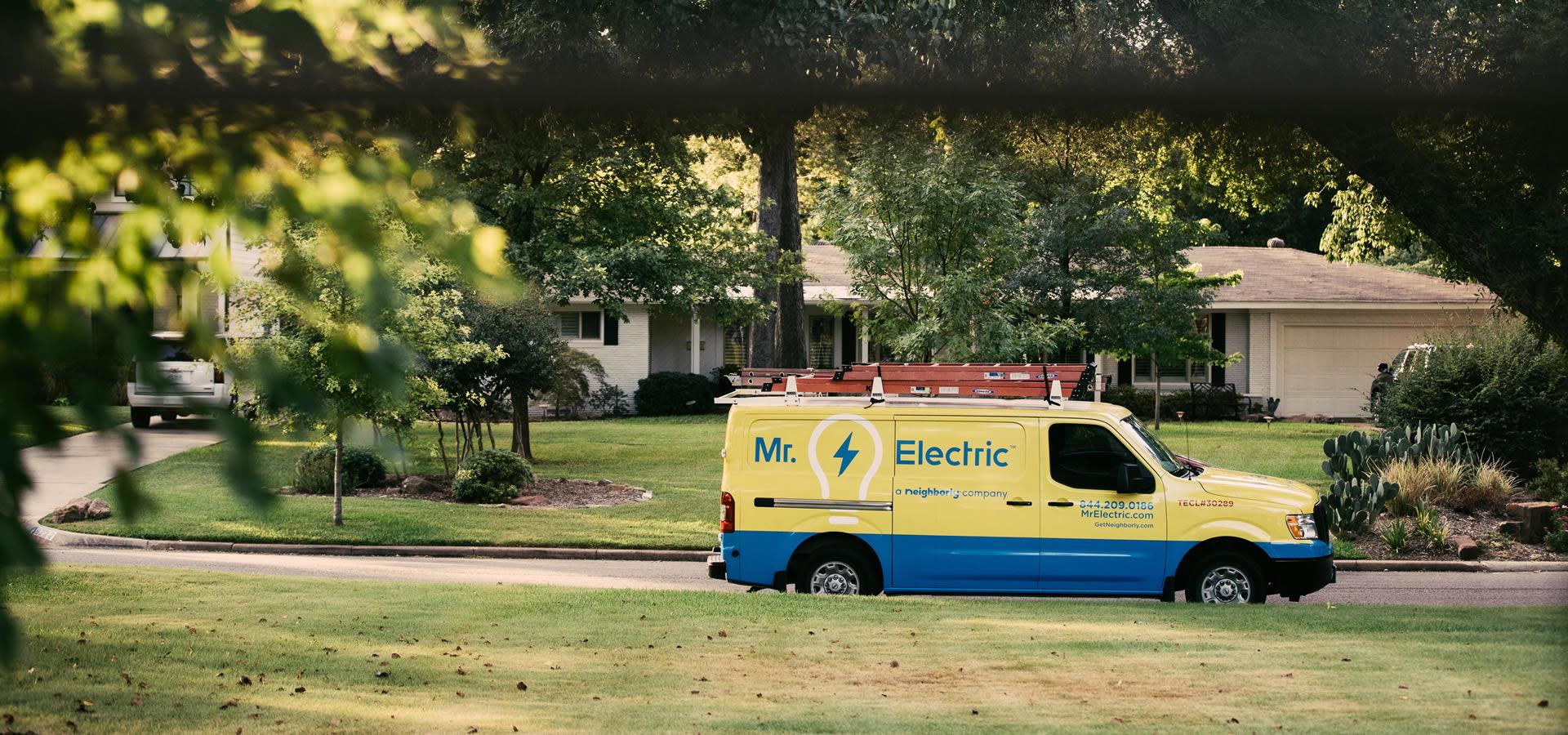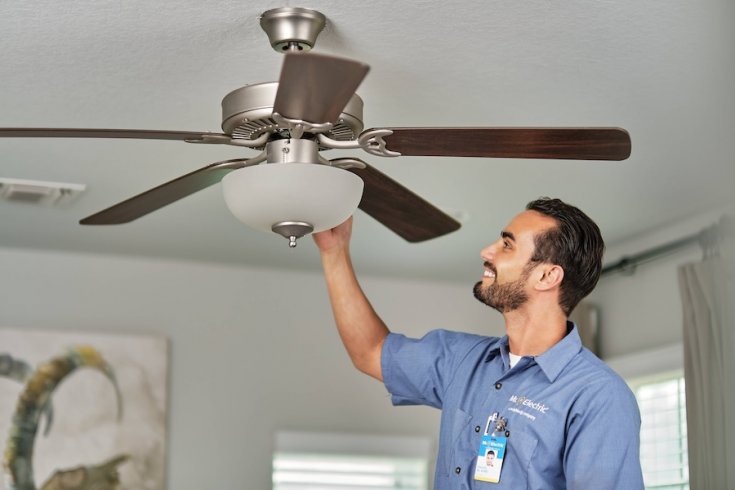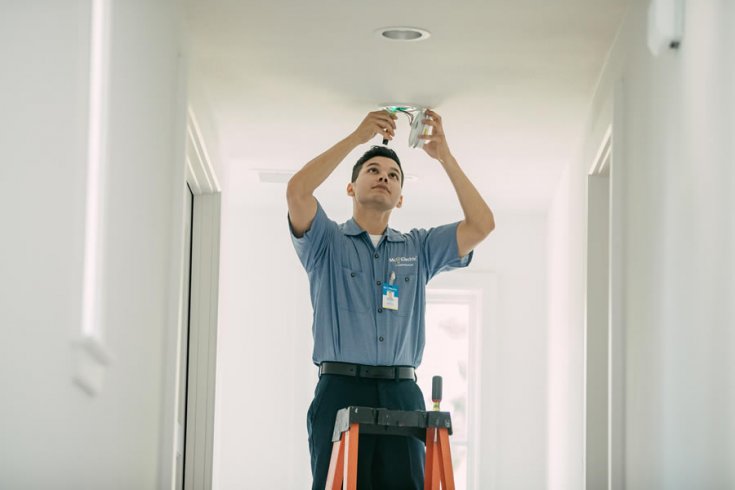Protecting Your Home Office and Entertainment Systems From Power Surges
We’re well into the 21st century, and modern technology and electronics are woven into nearly every patch of daily life. Behind the scenes, electricity powers everything from home offices and smart appliances to electric vehicles and streaming setups. But while electricity makes all these things possible, it can also destroy them in an instant.
A single power surge can fry your expensive electronics in the blink of an eye, and a lightning strike is not the only cause of power surges. Computers, monitors, routers, gaming systems, TVs, sound systems, and even your smart home devices are vulnerable.
Fortunately, protecting your equipment isn’t as complicated as it sounds. In this brief article brought to you by Mr. Electric, we’ll explore how power surges happen, what they do to your electronics, and how a few smart moves can save you from unexpected electrical repair.
What Causes Power Surges?
First, what is a power surge? It’s a sudden increase in the voltage, or force, of electricity running through electrical wiring. The standard outlet delivers 120 volts of electricity… a power surge can push that up to thousands of volts in a fraction of a second.
Lightning is one of the most intense and well-known culprits when it comes to power surges, but it’s not the only one. In fact, lightning is not even the most common. Everyday electrical activity inside your home are more likely to cause a power surge.
For example, when large appliances like air conditioners or refrigerators turn on and off, they draw and release bursts of energy that can ripple through the circuit. Over time, these micro-surges wear down sensitive electronics without you even realizing it.
Utility company maintenance, power grid fluctuations, and downed power lines can also send unexpected voltage spikes through your system.
How Power Surges Damage Home Office and Entertainment Equipment
Modern electronics are incredibly sophisticated and extremely sensitive. Inside your computer, TV, or sound system are tiny microprocessors and delicate circuitry designed to operate within narrow voltage ranges.
A lightning strike carries millions of volts of electricity, and it’s no surprise that amount of energy will burn through delicate circuitry, wiring, microprocessors, and almost whatever is in it’s way.
Lightning is an obvious one, though. It’s the internal threats that are more concerning. Small-but-consistent surges from appliances cause cumulative damage; these surges slowly chip away at performance and lifespan over the years. Before you know it, your laptop or TV is “worn out” and has to be replaced.
Simple Steps to Protect Your Tech
There’s no reason to gamble with your gear when there are reliable ways to keep it safe. The most simple way to prepare your defense is with surge-protecting power strips. Look for strips rated in joules (the higher the joule rating, the better protection it offers).
However, plug-in surge protectors wear out over time and are restricted to one outlet at a time. Other circuits are still exposed, and a web of power strips is not the reasonable answer. For total coverage, consider a whole-house surge protection installation.
Installed at the electrical panel, the whole-house surge protector in Willis, TX intercepts voltage spikes before they ever reach your outlets.
Proactive Maintenance Goes a Long Way
An ounce of prevention is worth more than a pound of cure. Loose wiring, corroded connections, and outdated panels all increase the risk of power surges. If you’ve noticed flickering lights, scorch marks near outlets, or frequently-tripped breakers, then it’s past time to call a certified electrician.
Don’t wait for the damage to be done. The electricians at Mr. Electric can inspect your system for early warning signs, test your surge protectors, and recommend cost-effective solutions. Our price quotes come BEFORE the work begins, and our workmanship is guaranteed for a year.







